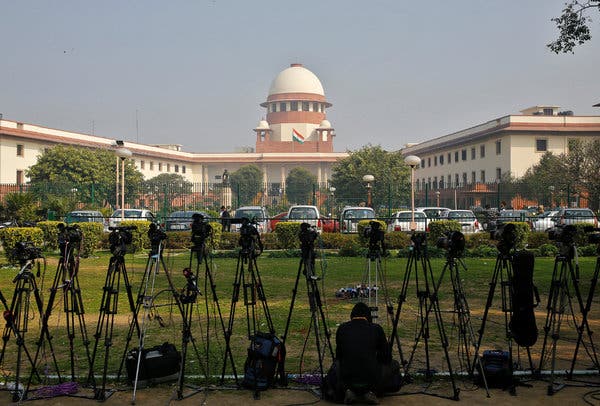New Delhi, June 30 (IANS) Finance Minister Arun Jaitley on Friday held out the assurance of a “very smooth” transition into the Goods and Services Tax (GST) regime, promising that the administration will be very liberal and not implement it “very strictly” in the first two months.
Acknowledging that there will be some minor problems when a massive change takes place, he said that things will smoothen out in the times to come.
“I think the roll-out will be very smooth, as smooth as possible. All systems are in place. When massive change takes place there is an element of uncertainty of the unknown and when there is unknown there is fear. The whole process will change. There will be some minor problems…I think that will be a matter of days,” he said.
He was replying to a question at the Aaj Tak GST Conclave on how smooth he expected the transition into the new indirect tax regime.
Asked if he would give a time-frame by when things will smoothen out, he said the process of registration is on. People will get attuned to the system.
“We will be very liberal in the first two months. For two months we have given a lot of laxity since we are getting into a new order,” he said.
“There may be glitches because of lack of awareness. In any technology, glitches are possible. But glitches are rectifiable almost immediately,” Jaitley said.
This is a formal launch, because the switch over will be from 12 midnight. It’s an idea of the government, he said when asked why the midnight hour was chosen for the launch.
Jaitley said that the July 1 roll-out date was not his decision. It was the GST Council’s decision.
“Last year’s constitutional amendment was valid till September 15. After September 15, we would have been a tax-less society. The Constitution does not allow this. There would be anarchy if we postponed it by six months,” he said.
On the whole, he said, the new law will bring in the principle of equivalence and equity in the indirect tax regime.
“Indirect tax is regressive. For a product, rich or poor has to pay same tax. To bring equity in indirect tax, the product being used by common man is being taxed at lesser rate. Single slab tax not possible in India. It may be possible in a developed country,” he said.
“There is a need to bring equity in indirect taxation, otherwise rich and poor will be paying the same tax.”
The Finance Minister said that the multiple tax slabs were chosen to keep a tab on inflation.
“Multiple tax rates necessary to check inflation. To prevent inflationary impact, 12, 18 per cent tax rate was necessary. At some later stage, they may be converged into 15 per cent.
“If you see the overall tax rate and the goods basket, the revenue will go up but the burden will come down,” he said.
Jaitley, however, refused to hazard a guess on how much the GST would help in boosting GDP growth.
“If there is higher compliance the formal economy grows and the government revenues go up. The efficiency of the economy also goes up.”
Replying to a question on the inclusion of real estate under GST, he said: “I think real estate should be brought into GST. On liquor, the states will have to come on board at some stage.”
He said petroleum has been kept at zero rate though it is part of the GST under the constitutional amendment because the states wanted to keep it that way.
Asked where would he place the GST in the pantheon of reforms, Jaitley said he would place it “fairly high”






